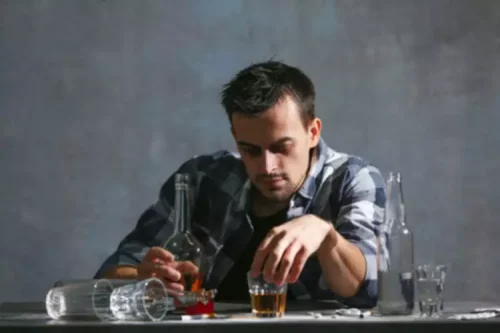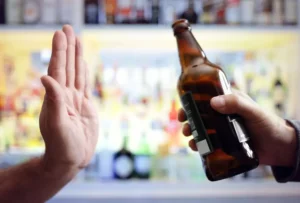Depression, Anxiety, and Binge Drinking

Alcohol withdrawal can cause severe and sometimes life-threatening symptoms. Compared to those without them, people with anxiety disorders—mental health conditions that cause frequent worry and panic—have lower levels of zinc, iron, and selenium. If you have social anxiety or a social phobia, therapy may work best to reduce your levels of anxiety (combined with a medication such as sertraline, or Zoloft).
Can Alcohol Cause Anxiety or Make it Worse?
- If you believe you or someone you love has anxiety that gets worse with alcohol use, you or your loved one can take steps to treat their anxiety and cut down or stop drinking.
- More intense versions of the same symptoms are commonplace for heavy drinkers and binge drinkers experiencing physical withdrawal from alcohol.
- And people with an alcohol use disorder (AUD) are 2 – 3 times more likely to have anxiety.
- These chemicals reduce your perception of pain and trigger an experience in the body that’s similar to opiates.
Opening up about your struggles can help you find like-minded people who are also struggling and make you feel less alone. These connections can provide comfort in difficult times and help you gain the confidence you need in social situations. By shifting your attention from focusing on your social anxiety to thinking about your present sensations, you can learn to become more mindful and change your brain’s response to stress.
How are alcohol and anxiety related?
By the same token, alcoholics who get depressed or feel anxious due to the problems their drinking causes—and who slip back into drinking again after trying to quit just to feel some relief—aren’t going to easily escape the loop. It also likely requires getting professional help, since once you start feeling miserable again, reaching for a drink may well be impossible to control. If alcohol withdrawal symptoms set in, there’s even more compulsion to drink to quell the unpleasant symptoms. According to the National Institute on Alcohol Abuse and Alcoholism, among those with alcohol dependence, nearly 37 percent met the criteria for an anxiety disorder in the past year and nearly 28 percent— for major depressive disorder. Among those with alcohol abuse issues, the prevalence was 29.1 percent for anxiety disorders and 11.3 percent for major depressive disorder.
Get the Lasting Support and Relief You Need
While alcohol may provide temporary relief from anxious feelings, it often contributes to a vicious cycle of worsening anxiety symptoms and increased alcohol dependence. People may begin drinking to take the edge off, only to find that their anxiety intensifies over time. This cycle can erode emotional stability and make it difficult to function day to day, especially when mental health issues remain untreated. At Sana at Stowe, we understand how intertwined alcohol use disorder and mental health challenges can be, and we offer a holistic approach to breaking this cycle through our dual diagnosis treatment programs. We guide clients in understanding their emotional triggers, developing healthy coping mechanisms, and rebuilding their lives free from alcohol’s grip.
If someone is sick because of a hangover, they might not be able to attend to their responsibilities at home, school, or work—which can, in turn, fuel their anxiety. One theory of why this happens is called the “tension reduction hypothesis.” This theory suggests that alcohol is used as a self-medicating method to reduce stress and anxiety. Located in the serene setting of Stowe, Vermont, Sana at Stowe offers luxury alcohol and depression rehab services that combine traditional therapies with holistic care. Our celebrity rehab services cater to those seeking privacy and personalized attention, providing a retreat-like atmosphere to focus on healing.

In general, we recommend women not have more than 1 drink in a day and men no more than 2 drinks in a day. So, if you’re feeling the effects of last night’s drinking, and you’re ready to start feeling better, anxiety and drinking here are 7 things you can do right now to combat hangxiety. A recent study suggests that being shy might be a subclinical indicator of social anxiety. And being shy makes it more likely that you’ll get relief from anxiety when drinking, but also more likely you’ll experience more extreme anxiety after the alcohol wears off.
Long-Term Effects of Alcohol on Dopamine Levels
- This article explains the links between alcohol and anxiety and how to manage anxiety disorders and AUD in daily life.
- It’s never too late (or too soon) to reach out for help if you are trying to cope with a mental health condition or substance use disorder.
- Both Obsessive-Compulsive Disorder (OCD) and Post-Traumatic Stress Disorder (PTSD) are sometimes considered anxiety disorders.
- This creates a setting that is as close as possible to the TSST, but does not contain stressful components (evaluative threat and uncontrollability).
Some people may experience anhedonia for a few hours after quitting alcohol, like with hangxiety. It helped, but shortly thereafter (like a week or two later), I learned I was pregnant and that was the final push I needed to ditch the cigarettes for good. My mental health didn’t improve as much as I’d hoped (thanks, hormones), but it was the beginning of my path to recovery, even through a really difficult pregnancy.
Alcohol disrupts your sleep

As one of the best dual diagnosis treatment centers, a key factor in our distinguished treatment is a thorough evaluation of whether mental health challenges existed before alcohol use began. Many individuals with alcohol use disorder report pre-existing anxiety, depression, or trauma. Addressing these underlying issues through therapies such as Cognitive Behavioral Therapy (CBT), Dialectical Behavioral Therapy (DBT), and Acceptance and Commitment Therapy (ACT) is critical to achieving lasting recovery. These different models are not necessarily irreconcilable when considering the patho-developmental trajectory of addiction. Cross-sectional snapshots of people who have significant alcohol problems might reveal groups with anxiety (Apollonian) and groups without anxiety (Dionysian), but, ultimately, all may become Apollonian types as addiction advances.
If they continue drinking, they could suffer blackouts or other drinking-related consequences like accidents, arrests, and jail time. Also, they will find themselves drinking at inappropriate times, like at work or school. People who have progressed in their drinking will often begin drinking at home instead of taking part in social and other activities they used to enjoy. If you’re considering a break from alcohol, it might also be helpful to Drug rehabilitation think about why you drink.

Submit your number and receive a free call today from a treatment provider. 1-in-5 individuals with anxiety report using alcohol to cope with stress. It’s estimated that 40 million Americans suffer from some kind of anxiety disorder at any given time. Individuals who suffer from Panic Disorder are prone to recurring, severe panic attacks. They are so frequent that people with Panic Disorder are often anticipating the next one.
